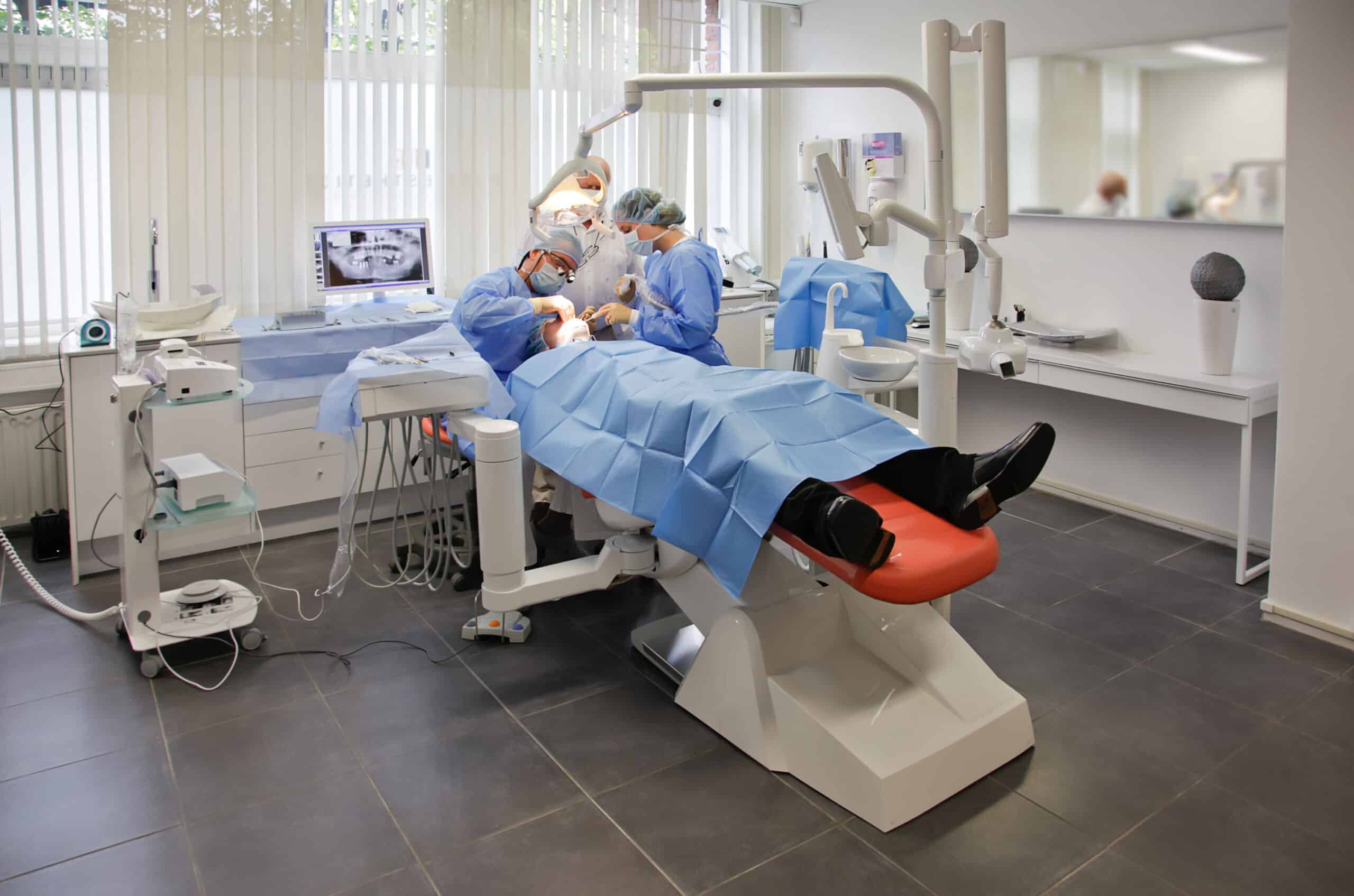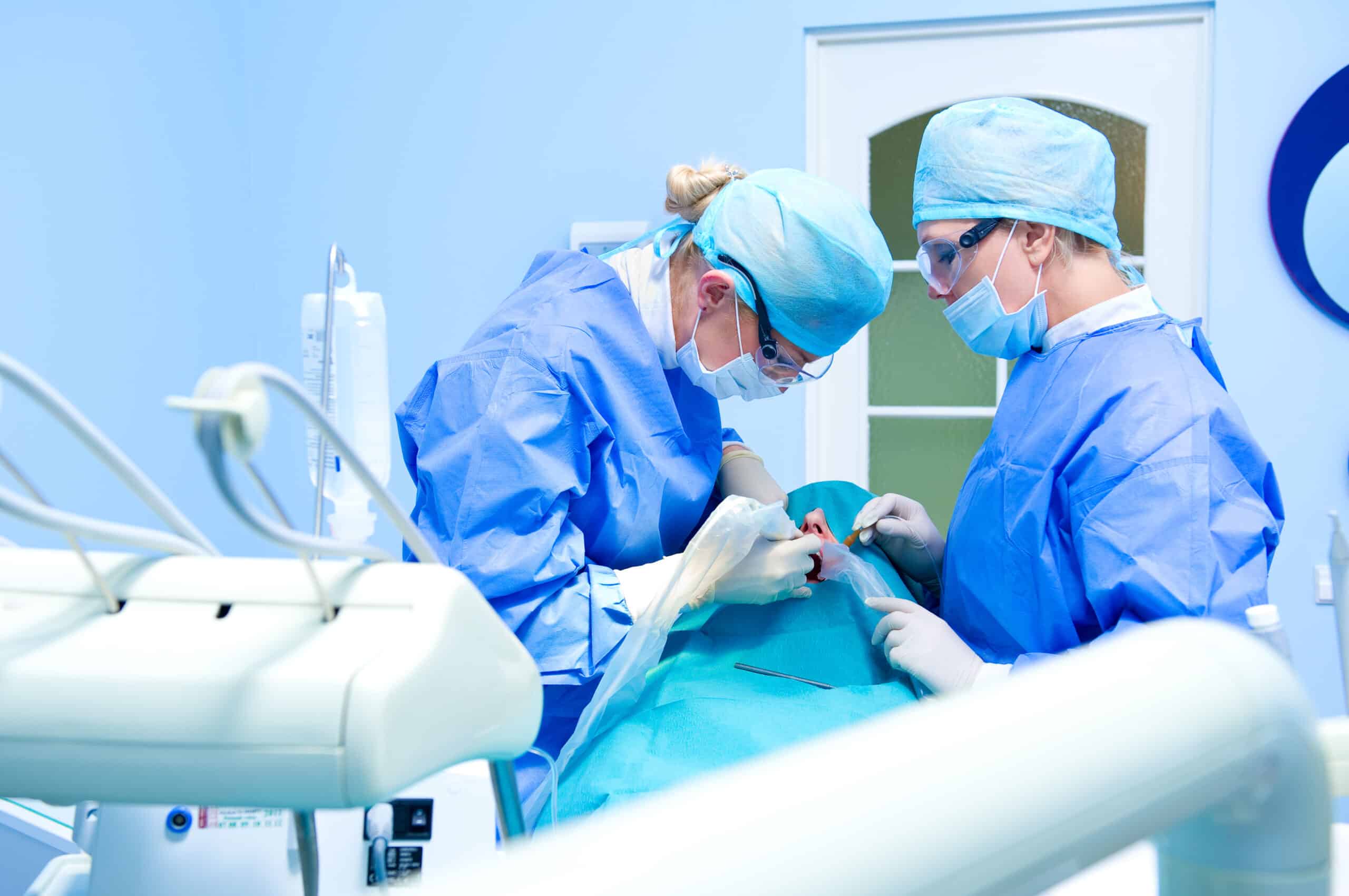Wisdom teeth are the pieces that usually culminate the dentition process: their eruption is common in adults between 18 and 24 years of age.
The eruption of third molars -also known as wisdom teeth- is usually associated with episodes of pain, swelling and even damage to perfect occlusion.
According to a study carried out by the Spanish Society of Oral and Maxillofacial Surgery (SECOM), 72% of the population presents some type of discomfort with regard to the eruption of a wisdom tooth in the lower arch. In the case of the upper arch, this percentage is reduced to 45%.
The extraction of wisdom teeth is one of the most common dental surgery procedures. Even so, this is a treatment that has a bad reputation among the population and generates great concern among patients.
If this is your case and you are going to undergo the extraction of a wisdom tooth in the near future, you can rest assured: it is a common procedure that does not entail major risks.
In this article we will answer all your questions about wisdom tooth extractions and the advice you should follow during the postoperative period.
When should a wisdom tooth be extracted?
Wisdom teeth are the last teeth to erupt and, on many occasions, they do not have enough space to do so properly.
In this regard, we can find ourselves in two different situations:
Their growth can be stopped, causing discomfort and inflammation in the area.
The wisdom teeth erupt partially or in an inadequate position, and can become a source of pain and infection, often causing occlusion problems.
Why does wisdom teeth eruption hurt?
Enlarge image
WISDOM TOOTH ERUPTION
In this regard, the dentist will recommend the extraction of wisdom teeth in the following cases:
When the patient reflects sensation of pain or inflammation of the gums.
When the eruption of the molar has been a source of infection or the patient has jaw cysts or tumors.
When the wisdom tooth is growing at an inappropriate angle and is exerting pressure on the rest of the teeth. In this way, there is a risk of occlusion problems – crowding, rotations – due to the eruption of the wisdom teeth.
When these teeth present carious lesions.
In addition, on some occasions when it is not known for certain whether the wisdom teeth will finally erupt or not, the dentist prefers to perform the extraction of the wisdom teeth as a preventive measure.
The objective of this intervention is to avoid future problems of alteration of the dental structure, displacing the teeth and altering the bite.
How are wisdom teeth extracted?
Initially, the dentist must make an accurate diagnosis prior to the extraction. Generally, the specialist will perform an orthopantomography -or panoramic x-ray- and, later, a CAT scan to evaluate the location of the tooth and the complexity of the extraction.
When should wisdom teeth be extracted?
Enlarge image
CT SCAN AT DrAW Dental Clinic FACILITIES
Generally, the extraction of wisdom teeth is performed in the dental clinic by the surgeon and under the effect of local anesthesia.
However, in some cases this intervention must be performed under general anesthesia and at hospital level. This decision will be conditioned by two fundamental factors:
On the one hand, the magnitude of the intervention. This should be done under general anesthesia whenever all four wisdom teeth have to be extracted, or if the jaw is very weakened and there is a risk of suffering a mandibular fracture during the intervention.
On the other hand, the specialist will have to pay attention to the patient’s systemic condition. If the patient has a high risk of bleeding -INR greater than 3-, the intervention should be performed in a hospital.
If the procedure is performed in the clinic, the patient will come for consultation with the expert surgeon. The dentist will administer the local anesthetic by making successive punctures in the area and then proceed with the extraction of the tooth.
In this regard, there are three different types of extractions:
Simple extraction of the wisdom tooth: the tooth has erupted completely and the dentist can extract it easily. This does not involve major complications and sometimes it is not necessary to stitch the area.
Wisdom tooth extraction with semi-surgery: the tooth has partially erupted, so it is necessary to perform microsurgery to remove the tooth completely.
Extraction with surgery, performed when the tooth is included and the gum must be opened to perform this intervention.
Does the extraction of wisdom teeth hurt?
You can rest assured: you will not feel any discomfort during the procedure.
In addition to local anesthesia, at the time of the intervention the specialist will administer analgesic and anti-inflammatory medication, as well as antibiotics to prevent infectious processes.
Preparation for the extraction of wisdom teeth
Enlarge image
APPLICATION OF LOCAL ANESTHESIA
Postoperative period after the extraction of wisdom teeth
Because of the anesthesia, you may experience vomiting and nausea after the procedure, and your mouth may feel numb. Do not be alarmed: the effect of the anesthesia lasts between 3 and 4 hours.
During this time, you must be careful not to hurt yourself by biting. In addition, it is advisable to put pressure on the wound with gauze to control bleeding. If the bleeding does not stop, you should replace this gauze every 20-30 minutes until the bleeding stops.
It is common to feel some swelling in the cheeks, in the area near the extraction, and even notice the presence of bruises and some difficulty in opening the mouth normally. Do not be alarmed: these discomforts will subside after a few days.
In addition, you should continue taking the medication prescribed by your dentist: usually painkillers and anti-inflammatory medications for 4 days after the extraction, and antibiotics for the week after the extraction.
These medications will mitigate the sensation of pain, which is common during the first 4 days after surgery.
What recommendations should you follow if you have had a wisdom tooth removed?
If you follow the guidelines set by the specialist who has carried out the intervention in terms of medication and care, the extraction should not have any complications. Usually, two weeks after the intervention, you will not feel any discomfort.
But there are also a series of recommendations that will make your postoperative period easier:
The first 24 hours after the operation, it is not advisable to rinse or brush the area to promote wound healing.
24 hours after surgery, and during the days following it, you can perform mouthwashes of warm water with salt to avoid possible sources of infection.
Follow a soft diet the days after the operation: avoid very crunchy foods or foods containing seeds, so that the remains do not stay away in the sockets and increase the risk of infection. Ideally, you should follow a cold diet, avoiding very hot or acidic foods and drinks.
To reduce the swelling of the cheeks, you can apply ice to the area.
Remember to maintain a certain amount of rest the days following the intervention: do not exercise and try to rest in a more upright position -the use of two pillows, for example, could be an easy solution to this problem-.
Avoid alcohol consumption and, as far as possible, do not smoke during the postoperative period -at least 24 hours after the operation-.
Finally, remember that maintaining strict hygiene guidelines is vital to ensure proper healing and avoid possible infections.
In case you suffer any discomfort derived from the eruption of a molar tooth, we advise you to overcome your initial fear and go to a specialist. The extraction of wisdom teeth is a simple surgery that does not involve great risks, and should be addressed before the total eruption has harmful consequences for the state of your teeth and gums.
You will be interested in ” 10 home remedies for toothache
At DrAW Dental Clinic we are guided by editorial guidelines that ensure the veracity of all the information we publish. If you want to know more about how we ensure that our content is updated and properly supported, we encourage you to read our editorial commitment.



